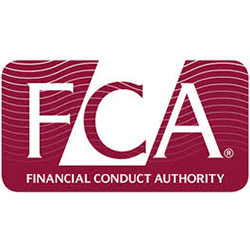Compliance
BREXIT COUNTDOWN: UK Readies For "No Deal" With Regulatory MoUs

The FCA and EU regulators have signed memoranda of understanding to reduce problems if the UK quits without a deal at the end of March.
UK and European Union financial regulators have agreed to
co-operate and swap information in case Britain leaves the EU
without a deal – an outcome that worries some industry
practitioners fearful of losing market access. The UK also set
out how financial services will handle a no-deal scenario.
The Financial
Conduct Authority has agreed memoranda of understanding with
the
European Securities and Markets Authority, as well as other
EU regulators, to exchange information and co-operate in the
event of a “no-deal” Brexit.
Unless legislators agree on a delay, the UK is due to leave the
EU on 29 March. Prime Minister Theresa May is battling to get a
withdrawal package proposal accepted by MPs. They decisively
rejected her first version more than a fortnight ago.
At stake is whether the UK leaves in a way that creates a
so-called “hard border” between Northern Ireland (part of the UK)
and the Republic of Ireland (a separate EU state) or not. Critics
of proposals to keep the UK in a customs union say it would
effectively treat Northern Ireland as distinct from the rest of
the UK, which is constitutionally unacceptable. They also fear
that a “Brexit in name only” deal – as some of branded the May
plan - makes it difficult for the UK to agree new trade deals
with non-EU states, and free itself from EU regulations on
domestic-only UK matters, some of the very reasons Brexit
campaigners gave for leaving in the first place.
The financial services sector is working – sometimes with little
media fanfare – to ready itself for a possible no-deal Brexit,
this publication understands. At a recent debate and seminar in
London, for example, fund management firm SGG set out options for
groups such as alternative fund managers in the event of no
deal.
The FCA said that the agreements with other regulators was an
important step to calm nerves.
“I am pleased we have been able to agree these MoUs. They will
allow for continued close cooperation in the event the UK leaves
the EU without an agreement,” Andrew Bailey, FCA chief executive,
said in a statement last Friday.
“They should also minimise the potential for disruption, which we
know is particularly important for the investment management
sector, credit rating agencies and trade repositories,” he
said.
Under EU legislation fund managers can delegate portfolio
management services to a third party in another country,
including countries outside the EU. In relation to funds and
managers authorised under the relevant EU legislation, there must
be cooperation agreements between the supervisory authorities in
the relevant EU member state and the non-EU country
concerned.
“This is a very important step that EFAMA [European Fund And
Asset Management Association] has been calling for many months,
as It will help avoid disruptions in the provision of asset
management activities. Ensuring that delegation continues to be
authorised as it is today is of paramount importance to the asset
management industry. It brings comfort to the industry in their
Brexit contingency planning but, most importantly, it ensures
that EU investors will continue to access world leading expertise
in the management of their savings. We are now calling on the EU
27 NCAs to swiftly conclude bilateral MoUs with the UK FCA on the
basis of the model MoU negotiated by ESMA,” EFAMA’s
director-general Tanguy van de Werve said.
Temporary transition
The FCA yesterday also set out how it would use the “temporary
transitional power” if there is no deal. The UK Treasury has put
forward draft legislation that would make transitional provisions
in case of no deal. “This is intended to minimise the disruption
for firms and other regulated entities in this scenario,” the
regulator said.
“The temporary transitional power would give the FCA the ability
to delay or phase in changes to regulatory requirements made
under the EU (Withdrawal) Act 2018 (the legislation that has
enabled the 'onshoring' of EU legislation and rules into the UK
rulebook) for a maximum of two years from exit,” it
said.
“The FCA intends to make use of this power to ensure that firms
and other regulated persons can generally continue to comply with
their regulatory obligations as they did before exit. This will
enable firms to adjust to post-exit requirements in an orderly
way,” it added.